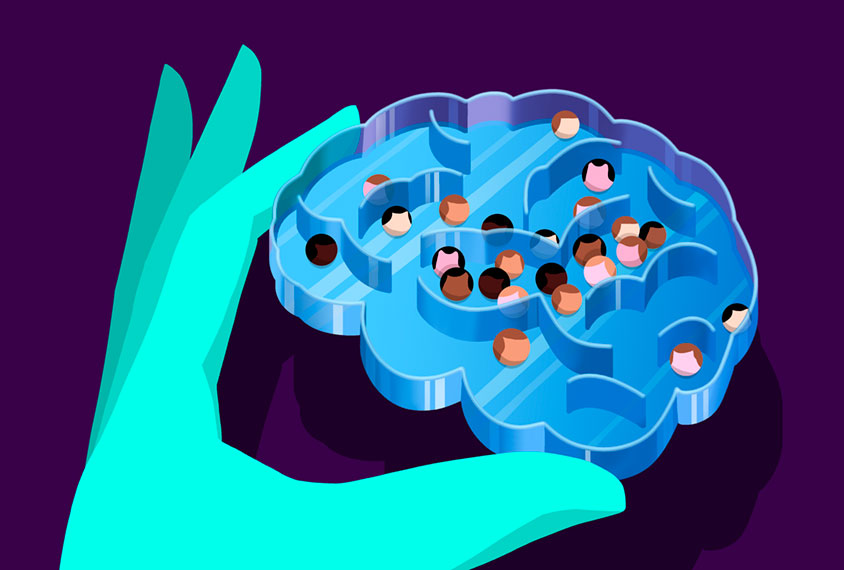Richard Bethlehem is a postdoctoral fellow and research associate at the Autism Research Centre and Brain Mapping Unit at the University of Cambridge in the United Kingdom. He studies integrated neuroimaging and transcriptomics to gain better understanding of the biological underpinnings of typical and atypical neurodevelopment.

Richard Bethlehem
Research associate
University of Cambridge
From this contributor
Q&A with Richard Bethlehem: What goes into a Brainhack
Brainhack conferences offer talks and hands-on tutorials, and unite small groups of interdisciplinary researchers to work on open-source neuroscience projects.

Q&A with Richard Bethlehem: What goes into a Brainhack
How normative modeling can reframe autism’s heterogeneity
Normative modeling could capture variability among autistic people and allow for individualized assessments.

How normative modeling can reframe autism’s heterogeneity
Explore more from The Transmitter
New autism committee positions itself as science-backed alternative to government group
The Independent Autism Coordinating Committee plans to meet at the same time as the U.S. federal Interagency Autism Coordinating Committee later this month—and offer its own research agenda.

New autism committee positions itself as science-backed alternative to government group
The Independent Autism Coordinating Committee plans to meet at the same time as the U.S. federal Interagency Autism Coordinating Committee later this month—and offer its own research agenda.
Two neurobiologists win 2026 Brain Prize for discovering mechanics of touch
Research by Patrik Ernfors and David Ginty has delineated the diverse cell types of the somatosensory system and revealed how they detect and discriminate among different types of tactile information.

Two neurobiologists win 2026 Brain Prize for discovering mechanics of touch
Research by Patrik Ernfors and David Ginty has delineated the diverse cell types of the somatosensory system and revealed how they detect and discriminate among different types of tactile information.
Shifting neural code powers speech comprehension
Dynamic coding helps explain how the brain processes multiple features of speech—from the smallest units of sounds to full sentences—simultaneously.

Shifting neural code powers speech comprehension
Dynamic coding helps explain how the brain processes multiple features of speech—from the smallest units of sounds to full sentences—simultaneously.